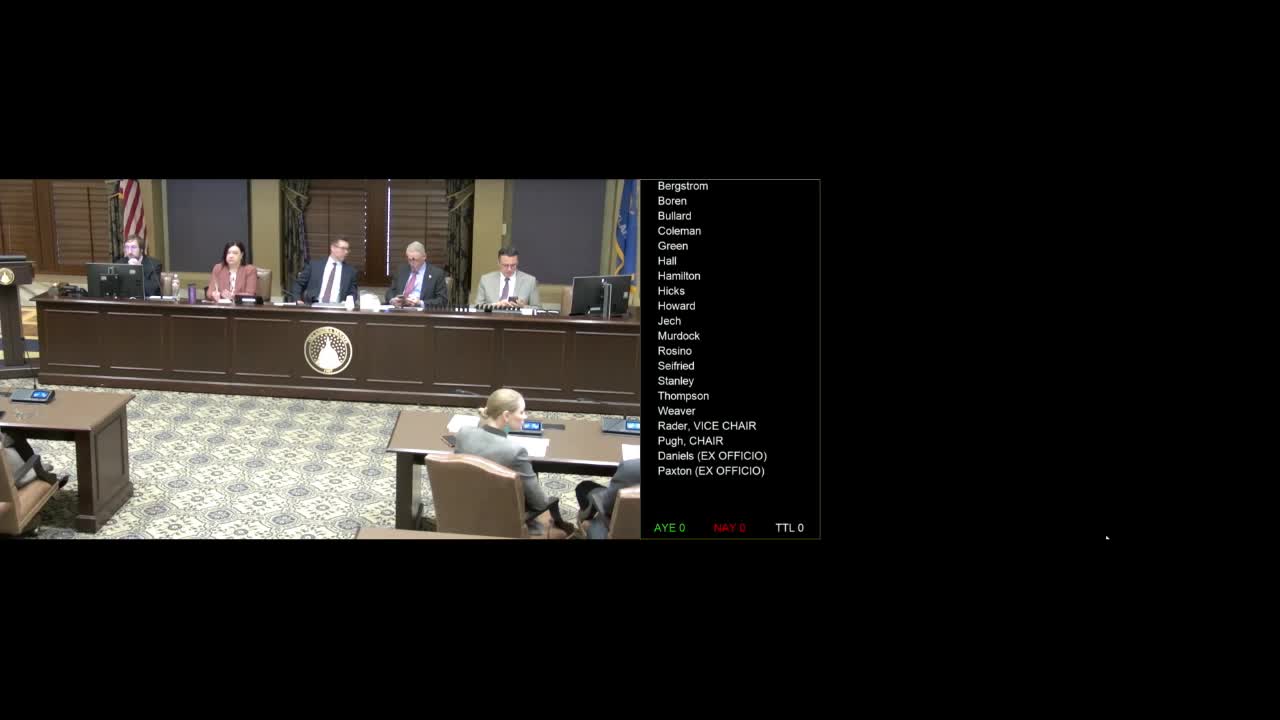Senate committee passes SJR 6 to shift judicial appointments to governor with six-year retention votes
Get AI-powered insights, summaries, and transcripts
Subscribe
Summary
Senate Joint Resolution 6 (SJR 6), a proposed amendment to the Oklahoma Constitution that would shift selection of Supreme Court, Criminal Court of Appeals and Court of Civil Appeals justices from the state Judicial Nominating Commission to gubernatorial nomination with Senate confirmation and six-year retention ballots, cleared an Oklahoma Senate committee by a 16-3 vote.
Senate Joint Resolution 6 (SJR 6), a proposed amendment to the Oklahoma Constitution that would shift selection of Supreme Court, Criminal Court of Appeals and Court of Civil Appeals justices from the state Judicial Nominating Commission (JNC) to gubernatorial nomination with Senate confirmation and six-year retention ballots, cleared an Oklahoma Senate committee by a 16-3 vote.
The resolution’s sponsor, Senator Guthrie, told committee members, “SJR 6 is a constitutional amendment modernizing Oklahoma's judicial selection.” The sponsor and supporters framed the change as increasing transparency by subjecting nominees to public Senate confirmation and giving voters a retention vote every six years.
Supporters repeatedly contrasted the proposal to the current JNC process. Senator Guthrie said the JNC selection work occurs “behind closed doors” and that the new process would permit public vetting of nominees through Senate confirmation hearings. He also said that retention ballots every six years, rather than lifetime appointments, would give voters a regular check on justices’ performance.
Opponents asked how the proposal would affect judicial independence and the separation of powers. Senator Sarah Hicks asked, “So modeling it after the United States Constitution, are these intended to be lifetime appointments?” Guthrie replied, “No, this actually has a 6 year ballot retention.” Several senators raised concerns that increased involvement by the governor and the legislature could politicize appellate appointments and make definitions such as “good behavior” vulnerable to partisan interpretation.
Committee members also queried practical consequences. Senators asked whether vacancies could remain unfilled during legislative gridlock; the sponsor acknowledged that under the proposed system, an unconfirmed nominee would leave a vacancy until the Senate acted, similar to executive nominations at the federal level. The sponsor noted that impeachment procedures would remain in place for misconduct and that the language in the resolution references judicial tenure “during good behavior.” When asked whether that phrase is defined in state law, the sponsor said he would “get back” to the committee with a precise citation.
Committee discussion included clarifications about which judges the proposal affects. The sponsor said district court judges, who are elected at the district level, are not part of this amendment; SJR 6 applies to appellate-level justices only. The transcript also records a reference to a recent retention election in which three justices faced the ballot, two were narrowly retained and one was not retained — used by the sponsor to illustrate that voter retention can alter the composition of the court.
Senator Bergstrom moved and Senator Coleman seconded a “do pass” recommendation. During the roll call several senators were recorded by name casting aye or no votes; the committee clerk announced a final tally of 16 ayes and 3 nays. The presiding chair declared, “Having received 16 ayes and 3 nays, I declare Senate Joint Resolution 6 to have passed.”
The measure’s committee passage advances SJR 6 in the legislative process; the transcript does not record a specific next step or an effective date for the amendment.
The hearing included extended questioning from multiple senators about transparency, the role of the JNC going forward, vacancy management if nominees are not confirmed, the definition and application of “good behavior,” and whether ethics or gift rules would apply to justices under the proposed system. Those substantive concerns and the sponsor’s responses are recorded in the committee transcript.
